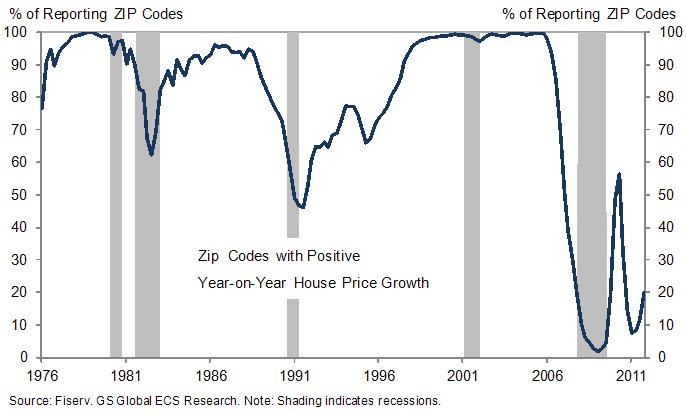By Jeremy Schwartz, CFA, Executive Vice President, Global Head of Research, WisdomTree
In a recent “Behind the Markets” podcast, Professor Jeremy Siegel from The Wharton School at the University of Pennsylvania and I had the pleasure of speaking with Dr. Diego Rodriguez-Palenzuela, who heads the European Central Bank’s (ECB) business analysis division.
Given the recent yield curve inversion, Rodriguez-Palenzuela is keeping a closer eye on the U.S. but believes that the natural or equilibrium rate of interest is low on a global scale and the U.S. is not the only country affected by low natural rates.
Although Europe has negative short-term rates, it doesn’t possess a negative term structure, and European economic growth is still significantly lower than that of the U.S. Part of the reason for low growth in Europe is due to external factors such as the low growth in emerging markets and protectionist trade policies.

European Rebound
The yield curve inversion may not be a sign to get overly bearish, and Rodriguez-Palenzuela says the ECB is still confident in the European recovery taking place.
Unlike past guests who see more adverse impacts of a negative interest rate environment, Rodriguez-Palenzuela acknowledged setbacks but noted the upsides of negative rates, including governments that can finance themselves very cheaply—not just safe havens such as Germany but also Spain.
Savings Glut
Professor Siegel added that central banks aren’t directly responsible for low interest rates, but market forces are. Rodriguez-Palenzuela believes demographics and the global savings glut is also contributing to low rates in addition to the slow global growth.
Rodriguez-Palenzuela finds the relationship between the ECB and EU to be a harbinger for maintaining European unity, despite the initial difficulties that countries faced when joining the EU.
Although Rodriguez-Palenzuela said it is hard to examine counterfactuals of how unity would have developed without the euro, what is happening with the United Kingdom trying to leave the European Union is perhaps an indicator that more countries might have left the EU earlier if they had not joined the euro currency union.
Inequality Gaps
Looking ahead, there are still many things the ECB is working to improve upon. Rodriguez-Palenzuela highlighted the fragmented markets and the need to instill unity and integration and allow companies to scale.
Furthermore, he said he is focusing much of his research on inequality gaps caused by technology and the role for monetary policy and collateral when human capital and technology is becoming increasingly important.
Kevin Flanagan, WisdomTree’s Head of Fixed Income Strategy, reacted to the discussion with Professor Siegel and noted in many ways that the markets have cut rates for the Federal Reserve (Fed) with a drop in borrowing rates.
He also noted the yield curve was barely inverted when comparing it with the 80 and 40 basis point inversions that preceded the last two U.S. recessions. Although a yield curve inversion has been a strong indicator of economic deceleration in the past, it shouldn’t be seen as a sure sign.
GIC
In the last segment of the podcast, Jillian Fornito highlighted her time with the Global Interdependence Center (GIC), an organization that hosts conferences across the world to facilitate dialogue among academics, bank heads and investors to help expand global banking and economic perspectives.
WisdomTree is a global sponsor of the GIC, and we have enjoyed talking to many of the speakers from its events on our podcast. We hope to see you at some of the GIC’s upcoming events.
Please listen to the full conversation below.
Versions of this article first appeared on the WisdomTree blog on April 2.
Photo Credit: geir tonnessen via Flickr Creative Commons
Disclosure: Certain of the information contained in this article is based upon forward-looking statements, information and opinions, including descriptions of anticipated market changes and expectations of future activity. WisdomTree believes that such statements, information, and opinions are based upon reasonable estimates and assumptions. However, forward-looking statements, information and opinions are inherently uncertain and actual events or results may differ materially from those reflected in the forward-looking statements. Therefore, undue reliance should not be placed on such forward-looking statements, information and opinions.
About the Author: Jeremy Schwartz, CFA, Director of Research, WisdomTree Asset Management is responsible for the WisdomTree equity index construction process and oversees research across the WisdomTree family. Prior to joining WisdomTree, Jeremy was Professor Jeremy Siegel’s head research assistant and helped with the research and writing of Stocks for the Long Run and The Future for Investors. He is also co-author of the Financial Analysts Journal paper “What Happened to the Original Stocks in the S&P 500?” Jeremy is a graduate of The Wharton School of the University of Pennsylvania and currently stays involved with Wharton by hosting the Wharton Business Radio program “Behind the Markets” on SiriusXM 111.



